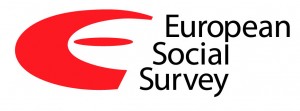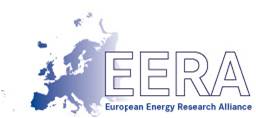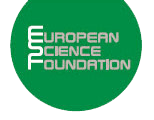 You are invited to contribute and participate in a Workshop on Meta Transfer of Knowledge – Challenges in Transfer of Knowledge in Industry.
You are invited to contribute and participate in a Workshop on Meta Transfer of Knowledge – Challenges in Transfer of Knowledge in Industry.
The workshop is taking place at the International Conference on Innovation through Knowledge Transfer at BU on 19th and 20th of April 2012.
The workshop is a part of Knowledge Transfer activities that take place within the EU funded INFER project coordinated by Prof. Bogdan Gabrys, DEC. INFER offers participants the opportunity to move between sectors and country in order to provide, absorb and implement new knowledge in a professional industrial-academic environment.
The workshop will allow conference delegates to benefit from experiences in knowledge transfer, knowledge exchange and knowledge sharing, during the progress of the INFER and other similar projects.
The goal of the workshop is to share the knowledge about the most effective transfer of knowledge activities that can and have been organised especially in large international projects such as those carried out within EC “People” Industry-Academia Partnerships and Pathways (IAPP) programme.
 Such projects are of particular interest to this workshop as their aim is to stimulate intersectoral mobility and increase knowledge sharing through joint research partnerships in longer term co-operation programmes between organisations from academia and industry where effective knowledge transfer is critical to the success of the projects.
Such projects are of particular interest to this workshop as their aim is to stimulate intersectoral mobility and increase knowledge sharing through joint research partnerships in longer term co-operation programmes between organisations from academia and industry where effective knowledge transfer is critical to the success of the projects.
As the transfer of knowledge mechanisms can be observed in all areas where the cooperation between academia and industry exists, it is hoped that sustainable collaborations between people who are interested in continuous development of these mechanisms and improvement of their efficiency will be fostered. This will give the opportunity to push further the discussion upon the potential of Transfer of Knowledge phenomena across different communities.
More about this event can be found on the project website and if you have any further questions about the Workshop please contact Katarzyna Musial.
 Exciting news if you’re interested in applying to the FP7 Food, Agriculture, Fisheries & Biotechnology theme next year – I’ve managed to obtain confidential documents which hint at calls to be released next July.
Exciting news if you’re interested in applying to the FP7 Food, Agriculture, Fisheries & Biotechnology theme next year – I’ve managed to obtain confidential documents which hint at calls to be released next July.





























 New weight change BU paper
New weight change BU paper One week to go! | The 16th Annual Postgraduate Research Conference
One week to go! | The 16th Annual Postgraduate Research Conference Geography and Environmental Studies academics – would you like to get more involved in preparing our next REF submission?
Geography and Environmental Studies academics – would you like to get more involved in preparing our next REF submission? Congratulations to three former BU staff
Congratulations to three former BU staff MSCA Staff Exchanges 2024 Call – internal deadline
MSCA Staff Exchanges 2024 Call – internal deadline Applications are now open for 2025 ESRC Postdoctoral Fellowships!
Applications are now open for 2025 ESRC Postdoctoral Fellowships! Horizon Europe – ERC CoG and MSCA SE webinars
Horizon Europe – ERC CoG and MSCA SE webinars MaGMap: Mass Grave Mapping
MaGMap: Mass Grave Mapping ERC grants – series of webinars
ERC grants – series of webinars